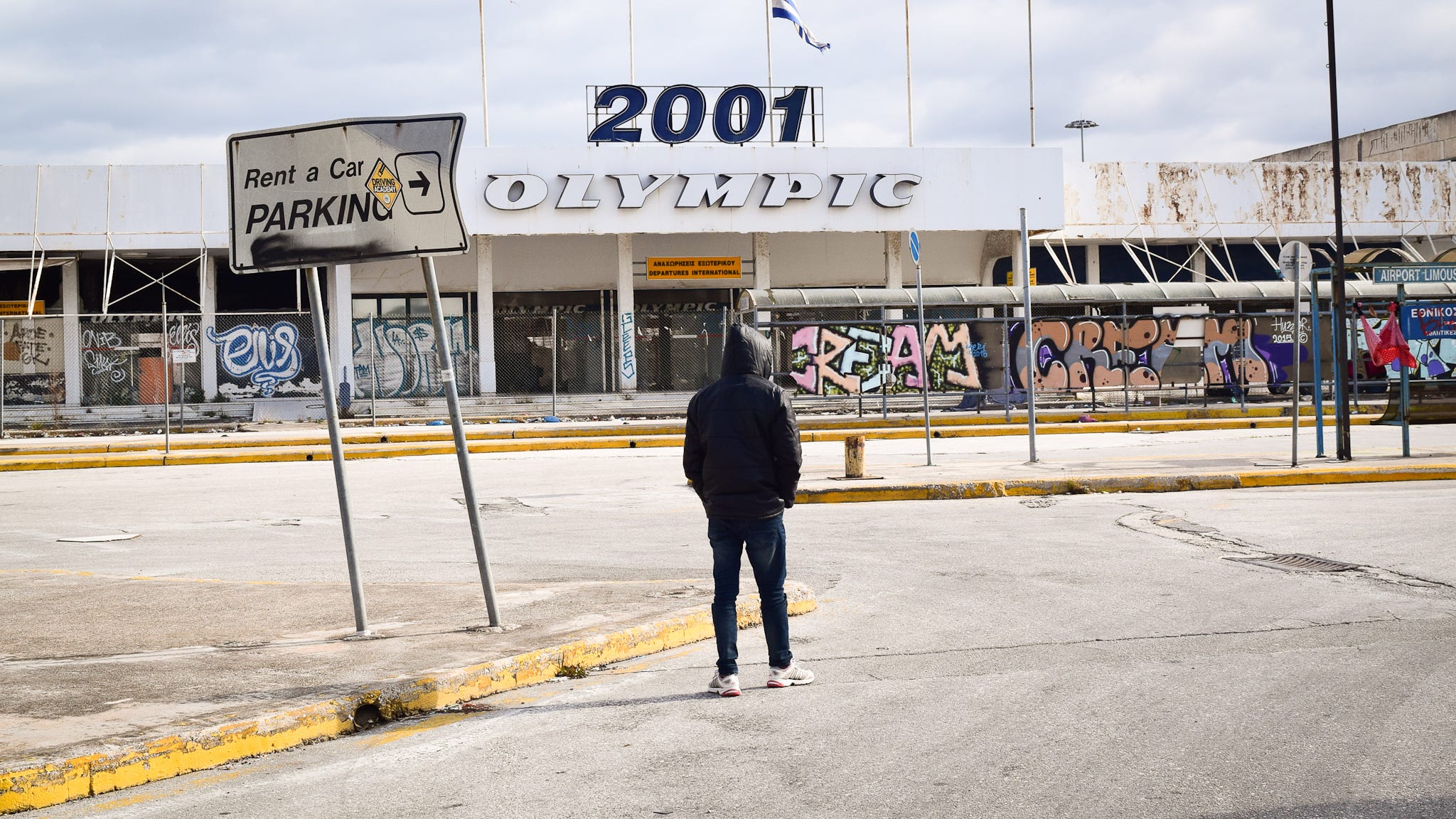Stuck in Limbo, These Muslim Men Are Turning to Prostitution, and Grappling with Guilt
Inside a refugee camp in Greece, where Afghans take desperate measures to feed their families — and their hashish habits.

Photos by Stav Dimitropoulos
Nine months ago, Tabaan, a 33-year-old refugee from Afghanistan, was sitting on a bench in the park separating the Elliniko detention camp in Athens, Greece, from the nearby coast, when a man approached him. “Fifty-five he must have been,” gauges Tabaan, who lived at the camp until it was evacuated earlier this month. “He nodded at me. I followed out of curiosity. Then, he hid behind a tree and took off his underwear. ‘Come, I’ll pay you,’ he whispered, waving a 20-euro-note in my face. I’d run out of money, and needed my hashish dose desperately, so I did it. Some pay 30, even 50.” Tabaan is one of several Muslim men from the camp — all completely straight, they insist — who have charged male clients for sexual encounters. Their names have all been changed here for their safety. This took place in a park less than 100 yards from the Elliniko camp where they and 700 other migrants and refugees, mostly from Afghanistan, were living. They used the money to bu…
Keep reading with a 7-day free trial
Subscribe to Narratively to keep reading this post and get 7 days of free access to the full post archives.



